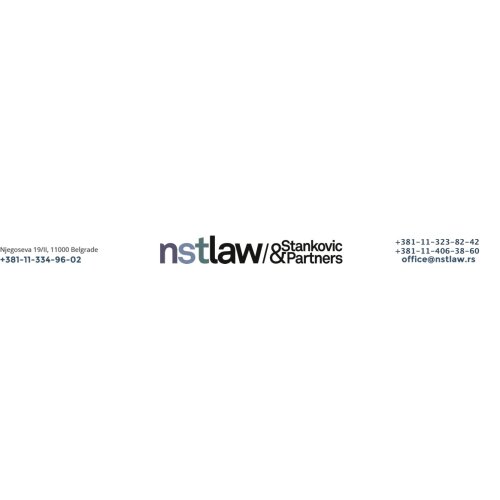Best Bankruptcy Lawyers in Belgrade
Share your needs with us, get contacted by law firms.
Free. Takes 2 min.
List of the best lawyers in Belgrade, Serbia
About Bankruptcy Law in Belgrade, Serbia:
Bankruptcy law in Serbia is governed by the Serbian Bankruptcy Act. The law aims to offer a fair settlement of a bankrupt entity's debts by realizing their complete assets and distributing them proportionally among creditors. It is seen as a last resort when a person or company can't fulfill financial obligations towards creditors. The process can be complex and often requires professional legal guidance to navigate.
Why You May Need a Lawyer:
Considering bankruptcy can be daunting, as it comes with legal, financial and emotional challenges. A lawyer can guide you through each step of this complicated process. From filing paperwork to negotiating with creditors, a lawyer can help protect your interests. This can be particularly important for people facing potential lawsuits or trying to understand the complexity of bankruptcy laws.
Local Laws Overview:
The Serbian Bankruptcy Act requires declaring bankruptcy if the debtor is insolvent or over-indebted. Laws pertain to liquidation proceedings where assets are sold to pay off debts, or a reorganization plan, which allows the entity to pay a reduced amount. Crucially, bankruptcy petitions can be initiated by creditors or debtors themselves. Once bankruptcy is declared, an official receiver or bankruptcy trustee appointed by the court takes control of the debtor's assets.
Frequently Asked Questions:
1. Can I keep my home and car after declaring bankruptcy?
This heavily depends on the specifics of your case and Serbian bankruptcy laws. Navigation through these laws would require a substantial understanding of bankruptcy law or assistance from a legal professional.
2. How long does a bankruptcy stay on my credit report?
Bankruptcy can stay on your credit report for up to 10 years, although its impact gradually diminishes over time.
3. What happens to my debts after declaring bankruptcy?
In most cases, debts are discharged or paid off in the bankruptcy process. Some debts like alimony or child support are generally non-dischargeable.
4. Can declaring bankruptcy stop creditors from harassing me?
Yes, declaring bankruptcy typically triggers an 'automatic stay,' which stops most collection attempts, including harassing calls, wage garnishments, and legal action.
5. Can I run a business after bankruptcy?
The law does not prevent you from starting a new business after bankruptcy, but it may be more challenging to secure credit and investors.
Additional Resources:
The Ministry of Economy and the Serbian Business Registers Agency are valuable resources for bankruptcy laws. They provide comprehensive information about debtor and creditor rights and obligations, offering services such as business registration, bankruptcy proceedings, and other related legal advice.
Next Steps:
If you are considering bankruptcy, contact a qualified local bankruptcy attorney for a consultation. They can analyze your situation and provide guidance on how to proceed. In addition, make sure to gather all relevant financial statements and creditor information to prepare for impending proceedings.
Lawzana helps you find the best lawyers and law firms in Belgrade through a curated and pre-screened list of qualified legal professionals. Our platform offers rankings and detailed profiles of attorneys and law firms, allowing you to compare based on practice areas, including Bankruptcy, experience, and client feedback.
Each profile includes a description of the firm's areas of practice, client reviews, team members and partners, year of establishment, spoken languages, office locations, contact information, social media presence, and any published articles or resources. Most firms on our platform speak English and are experienced in both local and international legal matters.
Get a quote from top-rated law firms in Belgrade, Serbia — quickly, securely, and without unnecessary hassle.
Disclaimer:
The information provided on this page is for general informational purposes only and does not constitute legal advice. While we strive to ensure the accuracy and relevance of the content, legal information may change over time, and interpretations of the law can vary. You should always consult with a qualified legal professional for advice specific to your situation.
We disclaim all liability for actions taken or not taken based on the content of this page. If you believe any information is incorrect or outdated, please contact us, and we will review and update it where appropriate.

















